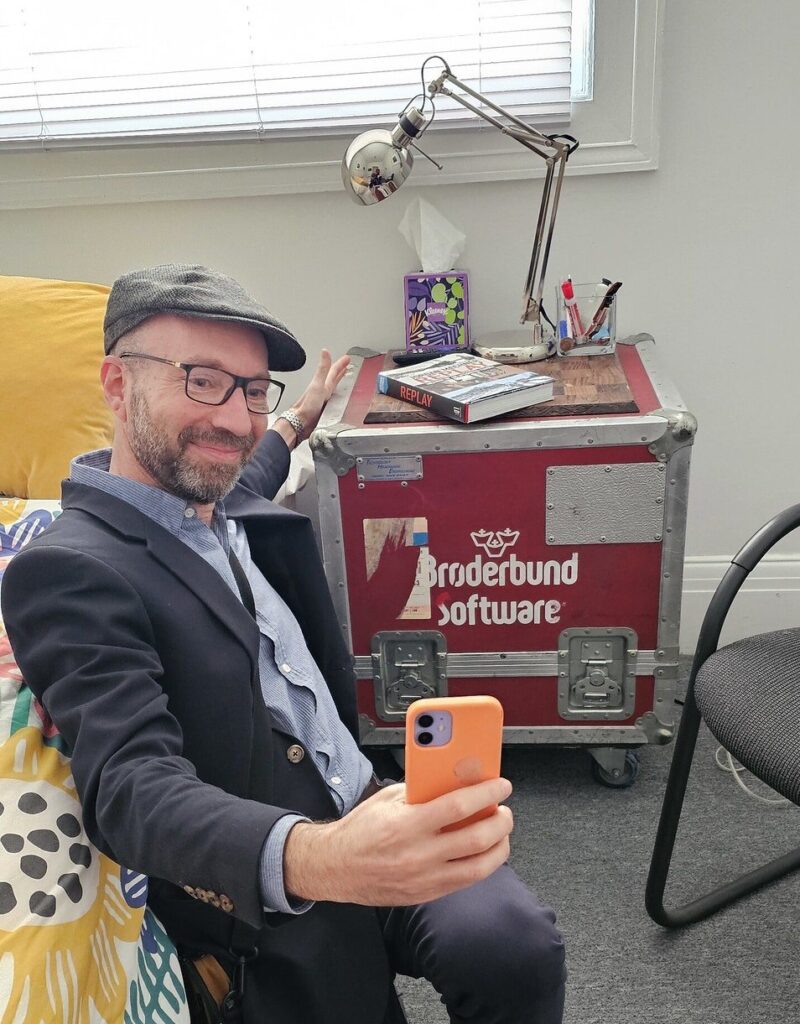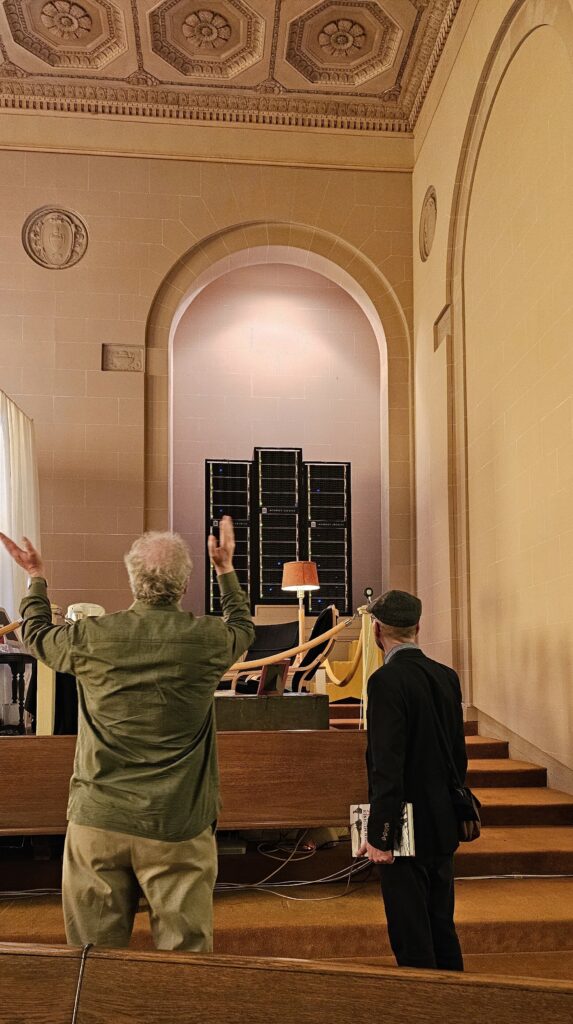If you’ve ever taken a tour of the Internet Archive headquarters with Brewster Kahle, you’ve likely watched him play a minute or two of the game “Prince of Persia” on our in-browser emulator. While talking through the technology involved, Brewster will press the keys to make the main character run through the dungeons of a kingdom, often dying rather quickly.
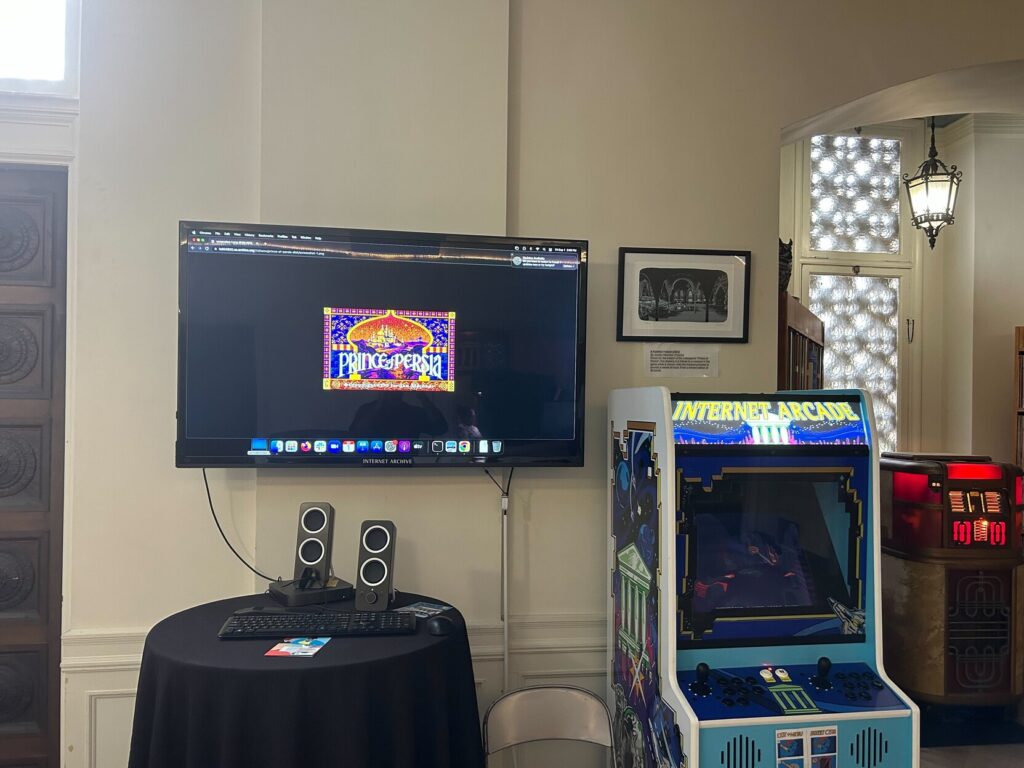
Over the years, the area around the “Prince of Persia” station has added additional decorations, including a print drawn by the creator of Prince of Persia, Jordan Mechner. Entitled A Faithful Friend, the print depicts a moment in the Prince of Persia Game where a small mouse visits the captive princess.
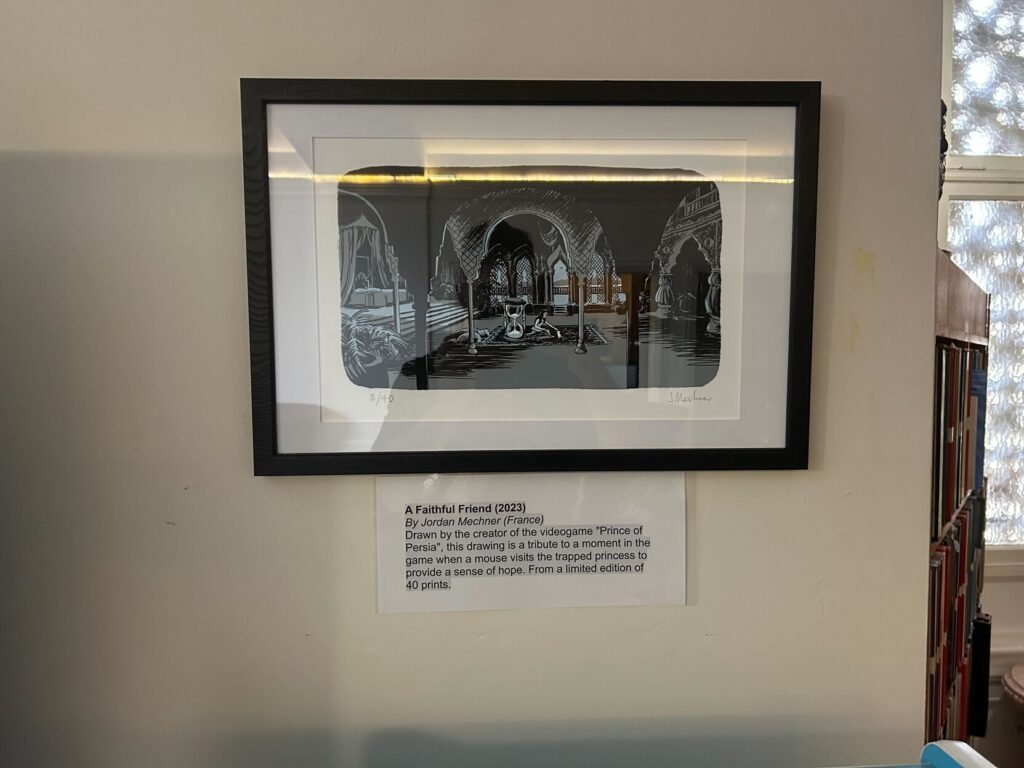
Worlds collided recently when Jordan Mechner, in town for the Game Developers Conference 2024 and doing some readings of his new graphic novel memoir Replay, stopped by the Internet Archive for a tour and discussion with Brewster.
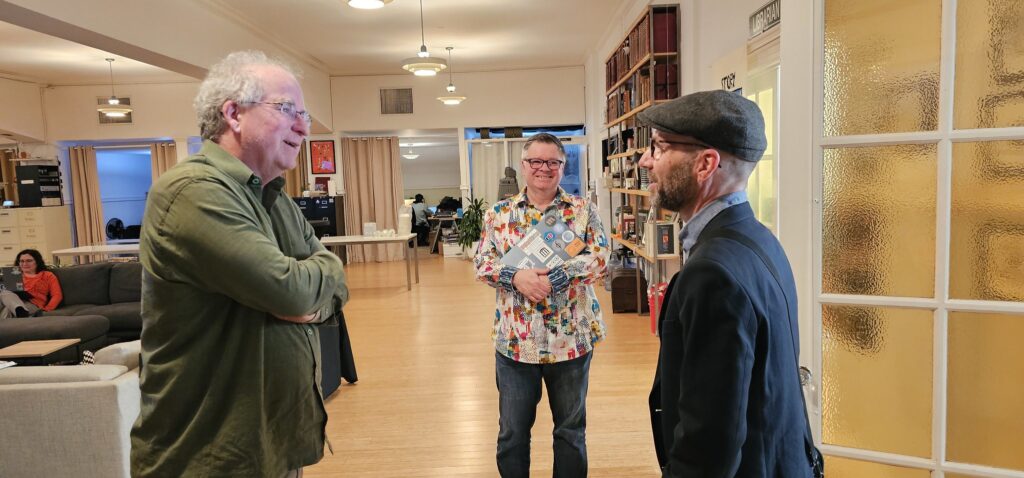
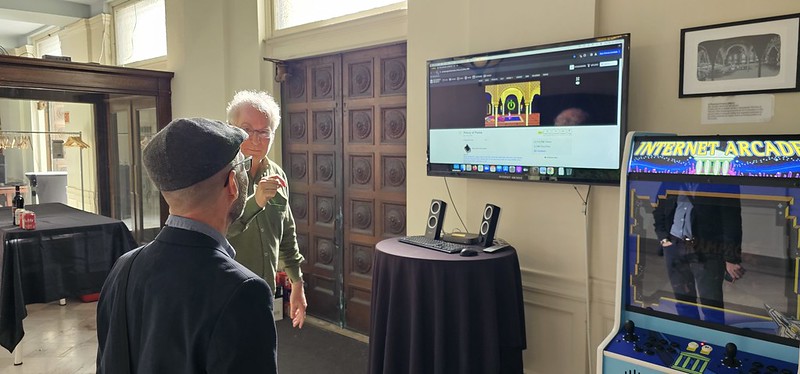
This provided a unique opportunity for the creator of a game that Brewster had been playing for years to give him tips to learn how to do a better running jump and get farther along than he had in his many demonstrations on the tour. It can be reported that Brewster was a fast learner and took Jordan’s suggestions to heart.
Jordan was also kind enough to gift a signed copy of Replay to the Internet Archive.
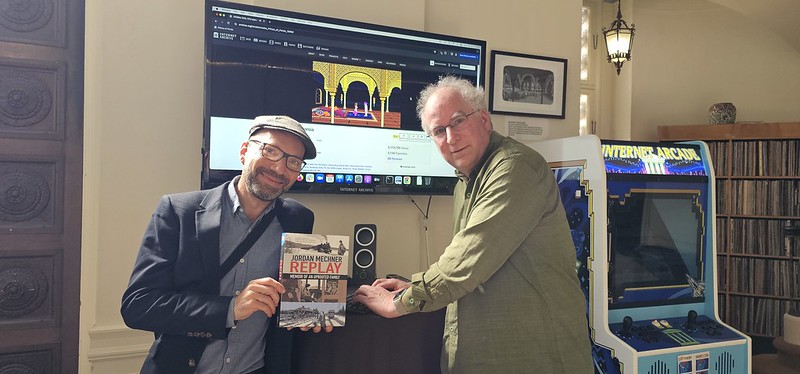
Conversation turned to the Internet Archive’s help in Jordan’s work creating Replay, including images and research for the historical parts of the novel.
During the conversation, Jordan had this to say:
“I appreciate [The Internet Archive] as a graphic novelist and as a game developer. Everything I’ve done throughout my life has been based on inspiration that I get from other things and on research that I’m able to do. When I went online to write and draw this 320-page book about game development and about my life and my family’s history, I looked for visual references of everything from old postcards and photographs to video game consoles.”
“I wanted to draw the floppy disk caddies and 1970s movie posters I had in my office in Brøderbund when I was making the first Prince of Persia on the Apple II. And where could I find a 1983 April issue of Softalk magazine, which is how I learned 6502 assembly language programming? So many times, when I searched online, it was the Internet Archive that came through.”
Brewster agreed:
“Well, I’m glad we’ve been useful to you, but also thank you for going and being a model for taking something that’s very, very popular in the past and making sure that it makes it to a generation that is going to download it from GitHub and play with it and mod it and do something else with it. And you’re welcoming of that next generation, living and growing with your work.”
And Jordan couldn’t have been clearer:
“And I will say that I don’t feel harmed by that. A few years ago somebody took the time to port Prince of Persia to the Commodore 64, which the publisher had no interest in doing in 1989, because the Commodore 64 was already outdated as a platform. Even the Apple II was on its way out. But somebody has done it now just out of love, out of its challenge, and the fact that the source code was available made that easier, I hope.
“Making things available to this generation. They’re going to do weird different things with it, especially if it’s not a permission-based society. But that’s what creativity has always been based on.“
Jordan acknowledged: “Copyright law exists and was created to protect the incentive of creators to work really hard at making something. So that if someone makes something great against all odds and it gets out there and sells a lot of copies, they can make money from it. But at a certain point, things that have been created need to then be used by other people to make their versions of it. The games and movies that we love, operas, films made of the works of Shakespeare, are building on creations of the past.”
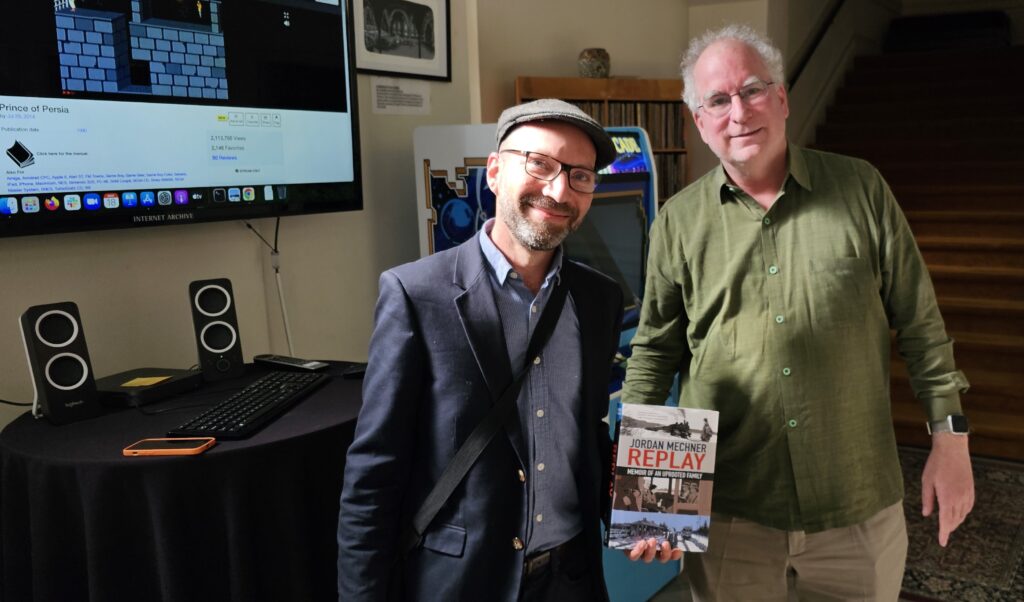
There was one last reunion in the visit: Years ago, the Archive was donated a travel case (for trade shows) used by Jordan’s game publisher, Brøderbund Software. It currently lives in one of the Internet Archive’s guest rooms, and Jordan got a quick selfie with a piece of his own history.
